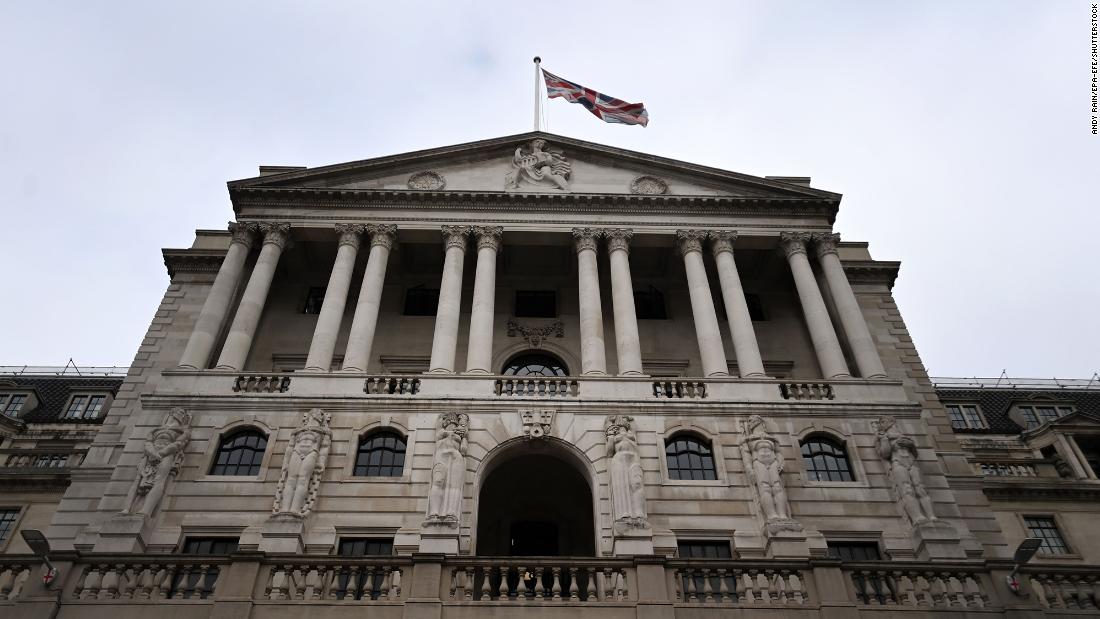The Bank of England just made its biggest rate hike in 27 years
The central bank said in a Thursday press release that inflationary pressures had “intensified significantly” in recent weeks.
“That largely reflects a near doubling in wholesale gas prices since May, owing to Russia’s restriction of gas supplies to Europe and the risk of further curbs,” it said.
The Bank of England has also forecast inflation to rise above 13% in the autumn, when energy bills are due to increase, and to “remain at very elevated levels throughout much of 2023.”
But the Resolution Foundation, a think tank, said on Wednesday that it expects energy costs to drive consumer price inflation past 15% next year.
Global natural gas prices started rising last year as the world’s economies reopened from their pandemic lockdowns, causing demand to spike. Skyrocketing costs have fed into consumer prices.
Average energy bills in the United Kingdom could top £500 ($613) for January alone, according to a new report from consultancy BFY Group.
Anti-poverty campaigners have been sounding the alarm for months.
About two-thirds of all low-income families have gone without essentials such as heating or taking showers this year, according to a June report by the Joseph Rowntree Foundation.
For all the latest world News Click Here

